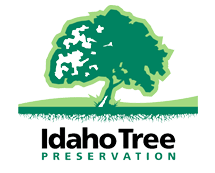Root Zone and Soil Treatments Boise, ID
Root zone and soil treatments are essential components of tree care that focus on maintaining healthy soil conditions to support strong and thriving trees. These treatments encompass various practices like fertilizing, mycorrhizae inoculation, decompaction, soil analysis, root zone soil improvement, and root and root flare inspections.
Fertilizing: Fertilizing involves the application of nutrients to the soil to ensure that trees receive essential elements for growth. This practice helps address nutrient deficiencies and promotes vigorous foliage, root development, and overall tree health. Fertilization is typically tailored to the specific needs of the tree, considering factors like soil composition and the tree’s age and condition.
Mycorrhizae Inoculation: Mycorrhizal fungi form beneficial symbiotic relationships with tree roots, enhancing nutrient and water uptake. Mycorrhizae inoculation involves introducing these fungi to the root zone to improve the tree’s ability to access nutrients and enhance its resilience to environmental stressors.
De-compaction: Soil compaction occurs when soil particles are densely packed, limiting water and air penetration to the root zone. De-compaction is the process of loosening the soil to improve aeration, water infiltration, and root growth. This practice is particularly vital in urban environments with compacted soil due to construction or heavy foot traffic.
Soil Analysis: A comprehensive soil analysis provides essential information about the soil’s pH, nutrient content, and structure. Understanding the soil’s composition is crucial for tailoring treatments and amendments to the tree’s specific needs, ensuring optimal growth and vitality.
Root Zone Soil Improvement: Soil improvement practices aim to create a healthy and supportive environment for tree roots. This may involve adding organic matter, such as compost or mulch, to enhance soil structure, water retention, and nutrient availability. Improved soil conditions promote robust root development and overall tree health.
Root and Root Flare Inspections: Regular inspections of a tree’s roots and root flare (the area where the trunk transitions into roots) are essential to identify issues like girdling roots, root disease, or structural problems. Detecting and addressing these issues early can prevent long-term health problems and promote tree stability.
In summary, root zone and soil treatments are vital components of tree care that focus on creating an optimal environment for trees to thrive. By addressing factors like nutrient availability, soil structure, and root health, tree care professionals can ensure that trees remain healthy and resilient, even in challenging urban environments. These tree services contribute to the longevity, and ecological benefits of trees in our landscapes.

